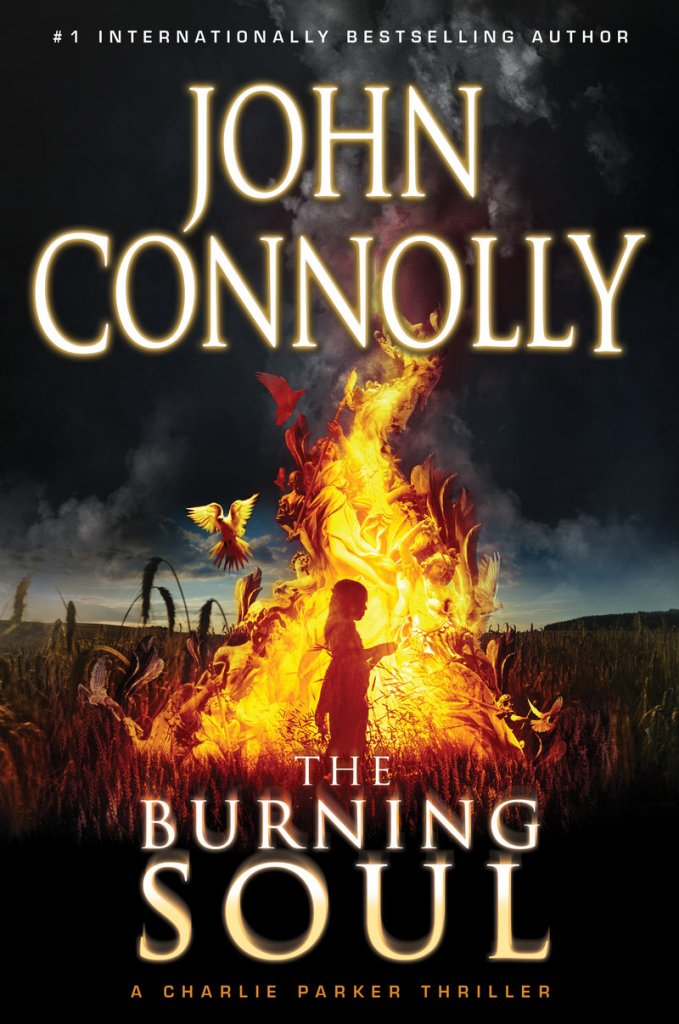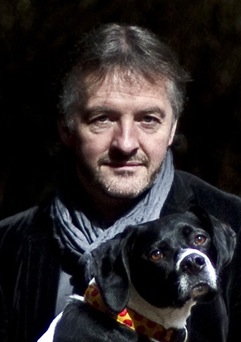In John Connolly’s “The Burning Soul,” Portland detective Charlie Parker is hired to help a man who, as a 14-year-old, was convicted of killing a 12-year-old girl in North Dakota two decades ago. The man has taken on a new identity after serving his prison time.
Now a 14-year-old girl is missing in the midcoast Maine town where the freed man has relocated, and he is receiving mail indicating someone knows about his past.
Parker’s investigation of where the notes are coming from and the girl’s disappearance involves people in the world of Boston organized crime, visits from spirits of dead people and quite a few deaths.
Connolly splits his time between Portland and his native Ireland. He weaves the landscape of Maine and the personality of the Pine Tree State’s people into the story, with the released convict benefiting from the let-people-alone attitude of the people in coastal Maine.
“The Burning Soul” (406 pages, Atria Books, $26) is the 10th in the Charlie Parker series of mysteries.
In October, Connolly also published “Infernals,” his second in a series of books for young adults.
Q: You have the Charlie Parker novels and this other series including “The Infernals” that was reviewed in last week’s Sunday Telegram. Is it hard to shift back and forth between the two of them?
A: I think that most authors have only a certain number of things that they can do, and one of mine is to write about children. I do it in different ways, in books for adults and for children.
One of my books, not part of a series, is “The Book of Lost Things,” a book about children for adults. So I don’t think it is a huge jump to do the same thing but in different forms.
Also, in writing crime novels, you can’t be funny. You can be a little funny, but you can’t really be funny. But in books for young adults and children, you can do anything that is consistent with the universe of the books.
Young adult fiction is fairly new. When I was young, I started reading adult fiction quite early. But the things about these books, especially ones like the “Twilight” vampire books, is that they aren’t really about what they seem to be about, but are about universal themes, such as falling in love with the wrong guy or about coming to terms with sexuality.
Q: So it isn’t just that you were getting tired of writing about Charlie Parker?
A: You don’t go to the gym every day to exercise the same muscles. You have to do different exercises to stay in shape.
It is the same with writing. I could make a very good living just doing the same book over and over, changing a few things in the series, because readers love reading about the same character, even if the quality goes down.
But writing about different things using the different muscles improves me as a writer and allows me to get better and better.
Q: Some of the lyricism of your writing reminds me of James Lee Burke, but you also have some noir in there. Who were some of your influences?
A: I think James Lee Burke is one of the two greatest American crime writers, so to be compared with him is an honor. Before I wrote my first book, I went to Montana to interview him for the Irish Times. I was so in awe of him.
Burke is the greatest crime writer in terms of language and importing the landscape to the criminal landscape. There is a lot of rot in Louisiana, in politics and institutions, and he shows the bogs and swamps of Louisiana rotting away as well. That is why I like his Louisiana books more than his Montana books.
I also like Ross MacDonald in terms of his empathy for the characters, and how a decision to act or not to act affects someone as a person.
Q: How did you end up in Portland?
A: I used to work at the Black Point Inn in Scarborough 20 years ago, and I fell in love with the place.
Maine and Ireland have a lot in common, both being maritime, and with the east coast having money and not so much as you go west into the more rural areas.
So a lot of those things felt familiar, although it was also different.
I didn’t want to be an Irish writer. Using Maine as a base helped me avoid the burden of being an Irish writer, with the background of the oppression, the revolution and poverty. And people really haven’t written much crime fiction in Ireland. There is no tradition of it.
Q: Were you ever a bartender at the Great Lost Bear, or is that just Charlie Parker?
A: I have been a bartender, but not at the Bear. When I started writing, I wanted to use real places, and I wanted to be as true to the city of Portland and the state of Maine as possible. It can’t always be exact, but I try to make it close. If I am writing and the plot doesn’t work with the place I want to use, I try to change the plot and not the place.
Q: Your mix of crime fiction with the supernatural is, if not unique, at least highly unusual. How did that come about?
A: There is a tradition in mystery and crime fiction of the application of science and rationality, going all the way back to Poe and Sherlock Holmes, and Agatha Christie with Poirot. They have a deep distrust of the supernatural or spiritual.
But in Ireland, there is a strong anti-rational side to the country. The country is strongly Catholic. Put that together, and there is a strong sense that rationality is not the only way to look at the world.
The roots of mystery fiction and supernatural fiction go to the same place, with black magic and the keeping of secrets. The mysterious and the supernatural make you doubt the foundation of your life.
Going back to what we talked about before with the “Twilight” series, supernatural fiction is not really about what it seems to be about. Burke does it very well, especially in “In the Electric Mist with the Confederate Dead.” It helps to explore things more if you fuse the two things together.
But the supernatural is still what I come under the most criticism for.
Q: You’ve had “The Burning Soul” and “Infernals” just out this year. Do you have anything left in the works?
A: The next Charlie Parker, “Wrath of Angels,” will be coming out next year. Also, I am working on a collection of essays written by mystery authors about mystery fiction, and that should be coming out next year.
Tom Atwell is a freelance writer in Cape Elizabeth. He can be contacted at 791-6362 or:
tomatwell@me.com
Send questions/comments to the editors.




Success. Please wait for the page to reload. If the page does not reload within 5 seconds, please refresh the page.
Enter your email and password to access comments.
Hi, to comment on stories you must . This profile is in addition to your subscription and website login.
Already have a commenting profile? .
Invalid username/password.
Please check your email to confirm and complete your registration.
Only subscribers are eligible to post comments. Please subscribe or login first for digital access. Here’s why.
Use the form below to reset your password. When you've submitted your account email, we will send an email with a reset code.